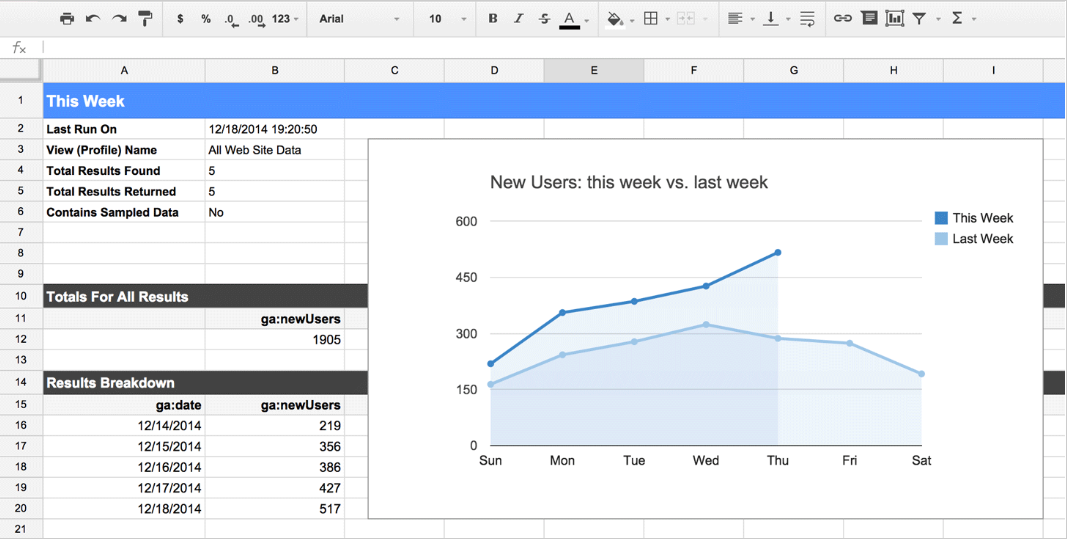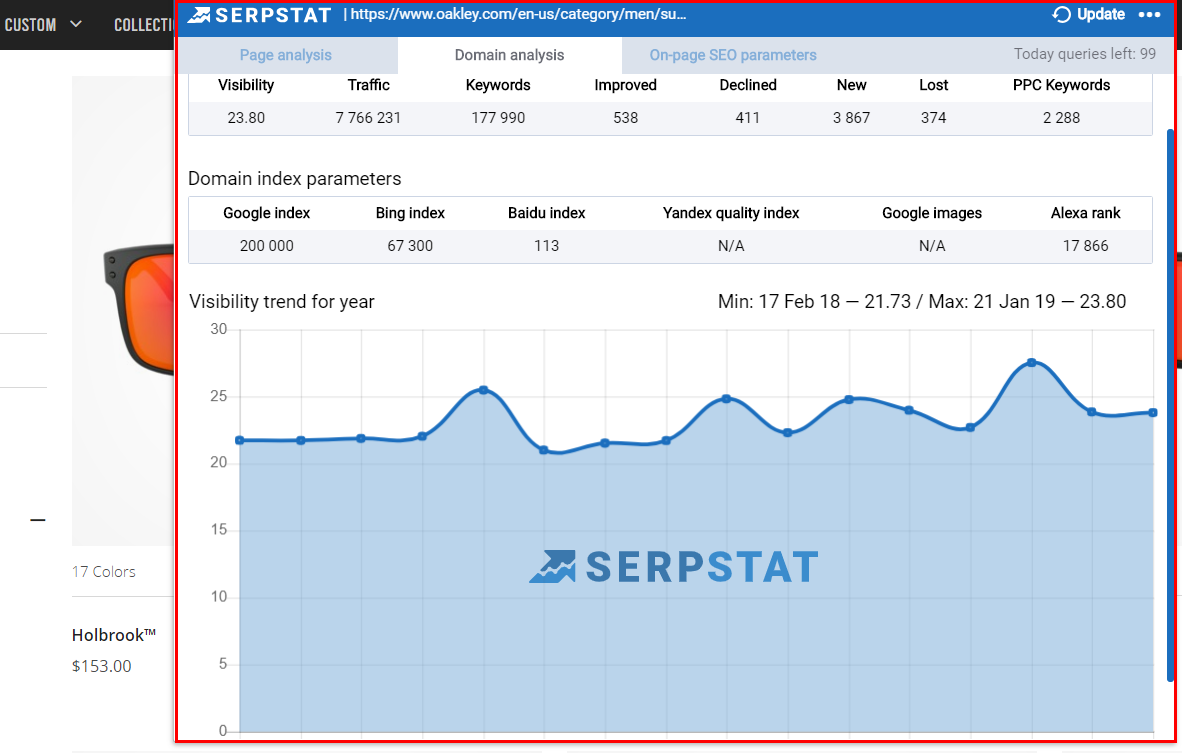Who can argue that building an SEO strategy is not a time-consuming thing? Keyword research, niche analysis, technical audit, link building — all these tasks are just a small part of an SEO’s daily routine.
Willing to automate search engine optimization processes, experts use special tools and software. But it’s not always sufficient when analyzing the results
Of course, solving some basic issues for a small website isn’t that difficult with quality SEO tools. On the other hand, if you work with several sites and analyze lots of data, you’ll need to find ways of saving your time. At this point, people may look into implementing other methods into their working process. Here usually come various SEO extensions and plugins. They are very convenient as you can activate them in one click right from the page you’re analyzing.
However, extensions often have even fewer features than the SEO tool itself. If taking a closer look at the issue, there’s one more decision to be found. I’m talking about APIs, the method few people know how to use, missing the opportunity to benefit a lot. In this article, I’ll tell you what an API is, why you need it, and how to use it to fulfill SEO tasks.
What is an API?
API stands for an application programming interface. It’s a set of functions that lets users get access to the data or components of the tool. In other words, an API is a set of methods of communication among several applications.
APIs may serve for various purposes. For instance, developers often use them to embed some objects into websites. If you see a piece of Google Maps on a site, it means that the Google Map API is being used there. The same may be done with apps or tools.
Why does an SEO expert need this?
The right API helps experts to simplify the whole process of data collection. Some SEO tools offer an opportunity for their customers to use their APIs and drive better results. It lets users integrate analytics provided by platforms into their custom interface tools. With an API, you can request data and get it, while not even managing the tool’s interface.
Advantages of an API:
- Speeds up data processing. In case you need urgent reports, the speed of data collection with APIs will come in handy.
- Customizable. Combine several reports and sort the obtained results in one click for the automation of your tasks.
- Saves you time. Instead of making single requests 100 times in a row, you can conduct a batch analysis of the data.
- Lets you integrate the analytics with your business documentation. You can get the results of the research in an external document like Google spreadsheets.
Four tasks you can better solve with an API
As previously mentioned, APIs let you make your SEO research much more flexible than typical tools do. So, what tasks exactly do APIs help with, and how can you use them for maximum profit?
While SEOs have various issues to deal with, there are different platforms created to facilitate keyword research, niche analysis, content curation, and evaluation of the results. Some of these tools provide APIs to make the research even more effective. Below you’ll find the tasks an API may help you cope with and the tools providing such a method for their customers.
1. Keyword research and batch analysis of websites
A comprehensive niche analysis and proper keyword research are the first tasks appearing in an SEOs’ to-do list when they get to a new project. SEO tools meet these needs very well. Unless you don’t want to spend your time analyzing each competitor or keyword individually. For this purpose, quality tools provide their APIs.
With Serpstat API, conducting complex research becomes easier than ever before. The thing is that working with it you don’t even have to know how an API actually works. Serpstat has created several documents with scripts already implemented there. It means that all you need to do is to enter your token and create your request. This document allows you to take advantage of all the Serpstat API methods in one place.
This API includes domain analysis, URL analysis, and keyword research features. It provides 17 reports on competitors, domain history, top pages, related keywords, missing phrases, and more. For example, if you want to know your competitors’ domains, you can do it in several clicks without spending limits on analyzing each website separately. Here’s a step-by-step instruction on how you can do that.

Step 1: Generate your token in your Serpstat account. Starting from Plan B (69$ a month), every user has access to the API. If you don’t have one, contact the support team via live chat to discuss options.
Step 2: Open the document and make a copy of it.
Step 3: Enter your token into the cell.
Step 4: Select a database from a dropdown list.
Step 5: Enter a list of your competitors’ domains.
Step 6: Choose domains > Domain info report in Serpstat tab
Step 7: Watch the following results

2. Content curation
Knowing the most trending topics and articles is the basic thing everyone who wants to attract their target audience needs to know. Moreover, tracking your content performance helps publishers improve their strategies to drive higher traffic and engagement.
As blog owners usually run lots of documentation to provide reports on their marketing results, integrating tracking tools into their own applications is extremely useful and helps save time a lot.
The Buzzsumo API provides a wide range of filters. Applying them, you’ll get highly specific reports that handle content creation processes for you. You can not only analyze your pages but also see your competitors’ top articles. Such reports will help you come up with the most engaging types of content.
Its standard API has five resources:
- Most Shared API. This API will help you fetch the share counts for a single URL. With it, you can also track the most popular content for a particular domain name or a keyword.
- Top Influencers API. If you want to find out who the influencers for a specific topic are, this API is for you.
- Links Shared API. It lets you discover recent links shared by a certain influencer.
- Article Sharers API. It shows you people who shared your article on Twitter within the first 2-3 days after the publication.
- Trending API. Using this API, you’ll get the articles trending today.
Links shared API request and response examples:

3. Monitor backlinks
Backlink analysis is another essential part of SEO. This process helps people see their link profiles’ weak points and discover new link building opportunities.
To integrate your applications with backlink analysis reports, you can use Majestic API. It’s available on Platinum and API plans. The full API lets you discover the following information:
- Available backlink data collected in the past 120 days
- Backlink data over the past 5 years
- Whether the link was still live when the site was crawled last time
- Anchor texts
- The date the link was found
- Whether the link was marked as “nofollow,” and more
4. Get performance metrics
Running a website and not analyzing the results it gives is a complete waste of time. So, it’s pretty difficult to find a person who owns a website and doesn’t have a Google Analytics account. The tool provides you with a deeper understanding of your audience, evaluate your marketing performance, and helps you find out what tactics that are working the best. However, accessing this data via the tool itself isn’t always convenient.
Website owners often need to build custom dashboards and integrate their analytics reports with their business applications. For instance, if you want to create a KPI dashboard for your marketing team, integrating Google Sheets with Google Analytics will be the best decision.
The Google Analytics reporting API allows users with the following:
- Not only request built-in metrics but also call for a set of metrics expressed in mathematical operations.
- Get the data in two date ranges in one single request.
- Request cohort and lifetime value reports.
- Make complex reporting tasks automated to save time.
To combine the power of Google Analytics API with the power of data operation in Google Sheets, use the Google Analytics spreadsheet add-on. It’ll let you compute custom calculations, schedule reports creation, share the data with your team, visualize your reports and embed them to other websites. To install the add-on, read the step-by-step instruction by Google Developers.

Bonus: More ways to optimize SEO processes
APIs are extremely useful when you deal with vast data. And what if you need to get the results here and now? In these cases, browser extensions will be handy. They help quickly analyze your page, find technical issues, or research keywords without switching between the page and the tools. I’ll share four free SEO extensions for Google Chrome that are essential for marketers.
1. SEO TextOptimizer
If you deal with content, you probably know this tool already. If not, it’s the right time to start using it. SEO TextOptimizer measures the quality of your content based on the topic and the words you use in the text.
All you need to do is enter your main keyword into its search field. The extension will show you the optimization score with the words you’d better add or remove from the article.

2. Serpstat SEO & Website Analysis Plugin
This SEO extension lets Serpstat users conduct SEO analysis in one click. With it, you can analyze your competitors, get your site’s top-10 keywords, get the data on domain’s traffic, see its visibility trend for a year, and more.
Serpstat SEO & Website Analysis Plugin has three tabs (Page Analysis, On-page SEO Parameters, and Domain Analysis) providing detailed information on each aspect.

3. SEOquake
This extension is an interactive SEO dashboard with the SEO overview, backlink report, and other important metrics. However, its best feature is SERP analysis. It means that when searching for the query, you’ll see the bar providing the most crucial domain data below each search result. With SEOquake, you’ll get the following metrics without even clicking through the page:
- Website traffic
- Alexa rank
- Total backlinks number
- Domain’s age
- The number of ads, and more

4. Woorank
The SEO and website analysis extension by Woorank is great for a quick analysis of the page’s SEO issues. It identifies crawl errors, usability, mobile friendliness, local directories, and more. The extension evaluates the total score of your marketing efforts and prioritizes all the issues for you to solve.

Optimize your working process for more effectiveness
The more tasks you have to solve, the more difficult it is to manage your time. Don’t limit yourself to SEO tools’ interfaces with the standard set of functions. Implement new methods into your SEO analysis processes to become more productive and save your time on manual work.
Tell us which of these tools have helped you save on precious productive time! Leave a comment below.
Inna Yatsyna is a Brand and Community Development Specialist at Serpstat. She can be found on Twitter @erin_yat.
The post How to speed up SEO analysis: API advantages for SEO experts appeared first on Search Engine Watch.
from Search Engine Watch https://ift.tt/2FbNp8U

No comments:
Post a Comment